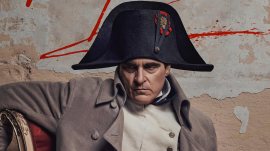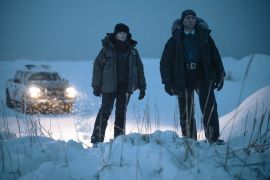25 best Western movies ever
With Quentin Tarantino's Django Unchained hitting cinemas, we saddle up and look back over the best tales from the Wild West on the silver screen
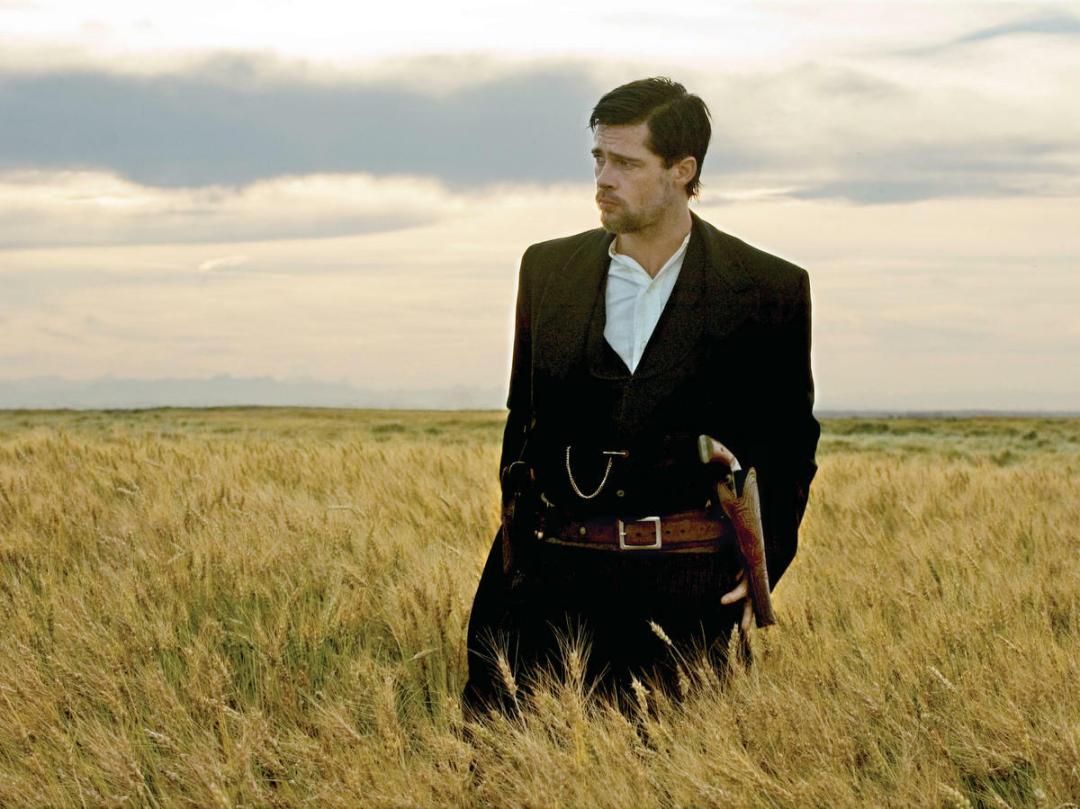
Is there a better way to spend a lazy Sunday afternoon than donning your stetson, grabbing your holster (not a euphenism) and sitting down on your sofa to watch a classic Western movie or two? Thought not. Here are 25 to keep you busy.
The Good, the Bad and the Ugly (1966)
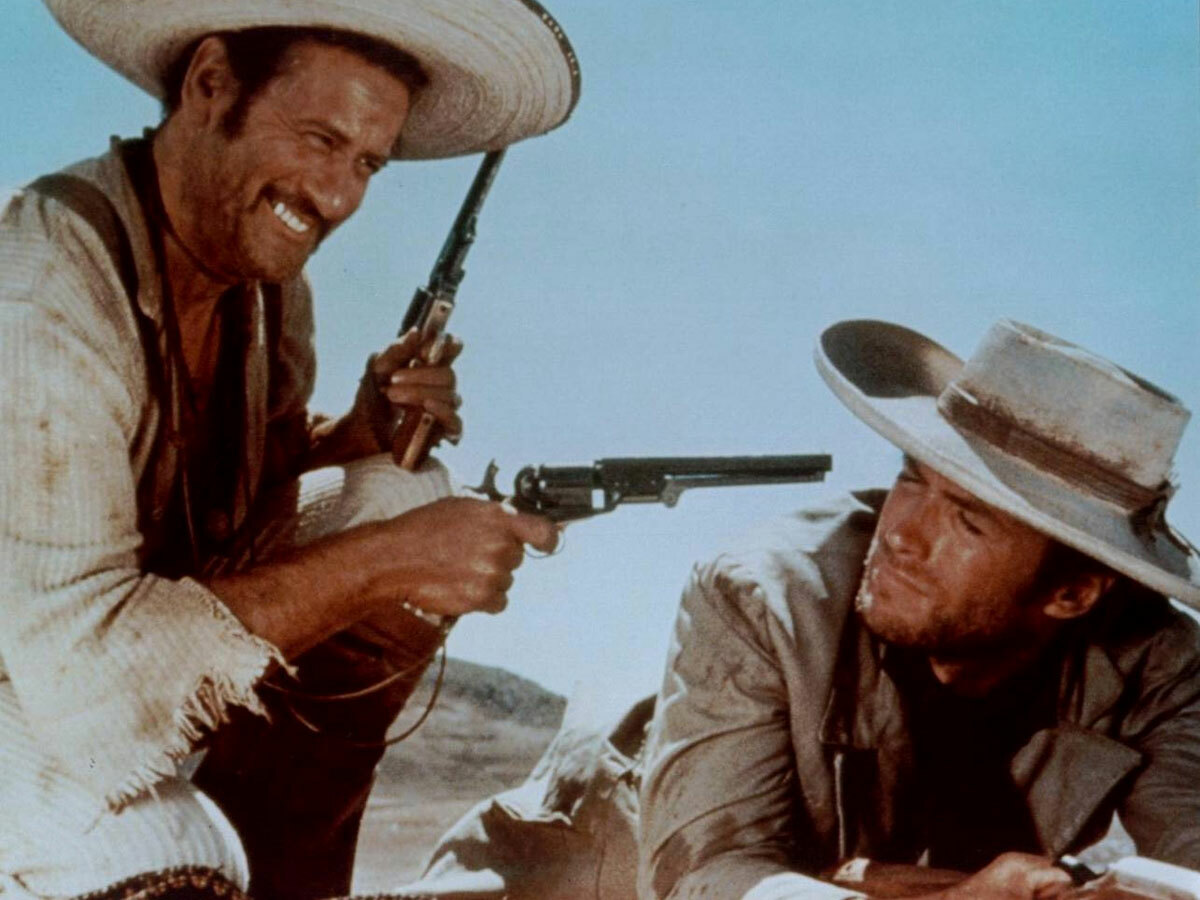
The third and best-known film in Sergio Leone’s “Dollars” trilogy, this Spaghetti western is arguably the most famous depiction of the violent, opportunistic American West – despite being filmed in Spain and Italy. Clint Eastwood, Lee Van Cleef and Eli Wallach play the titular characters, three men hunting treasure against the backdrop of the American Civil War (it’s actually a prequel to A Fistful of Dollars and For a Few Dollars More). One of the most stylish westerns you’ll ever see, and Ennio Morricone’s score is quite simply unforgettable.
Django (1966)
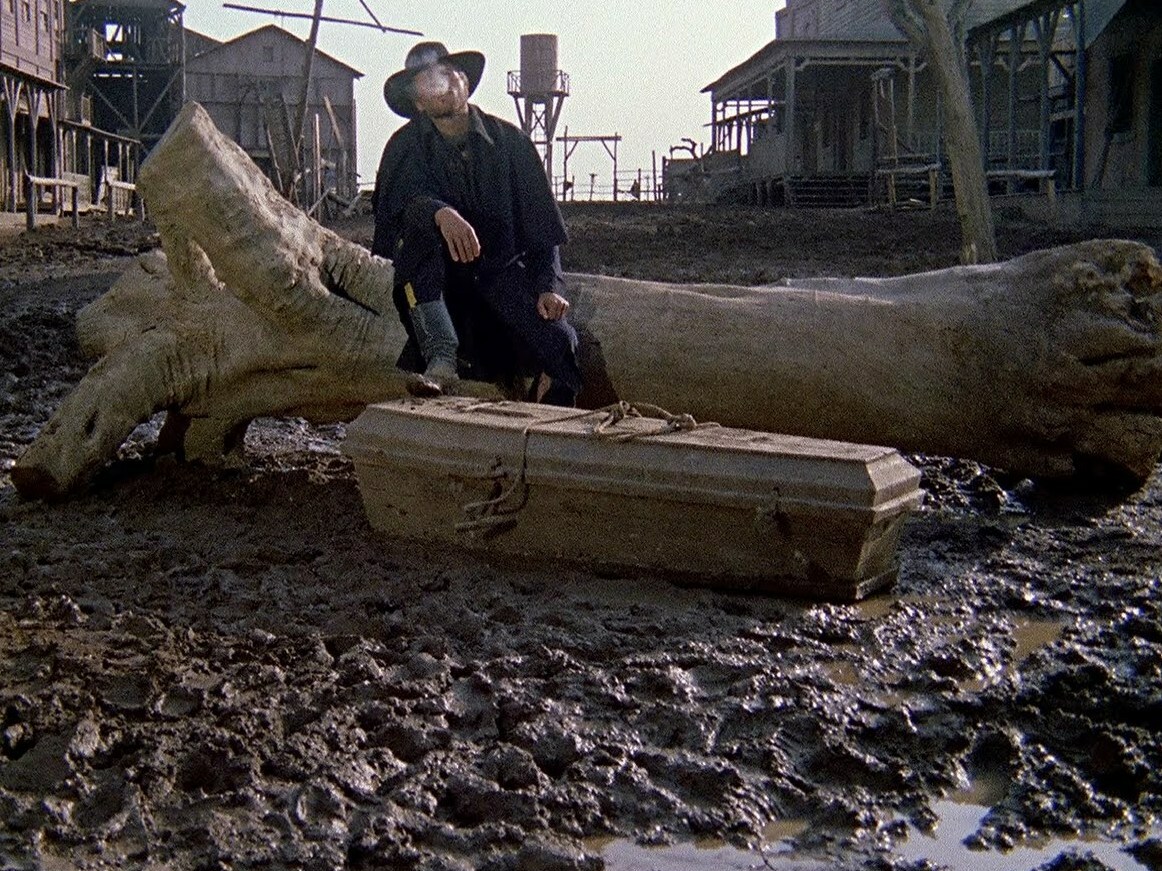
It’s best-known now for lending its name to Quentin Tarantino’s Django Unchained – but Sergio Corbucci’s spaghetti Western is iconic in its own right, spawning over thirty unofficial sequels. Franco Nero stars as the titular drifter, dragging a coffin across a muddy landscape – and into a gruesome adventure with Gothic overtones. Corbucci refused to let the set designers clean the set after a series of downpours, giving the film its distinctively grimy look, while the film’s violence – which includes the hero having his hands smashed – meant it was banned in Britain at the time of its release.
The Man Who Shot Liberty Valance (1962)
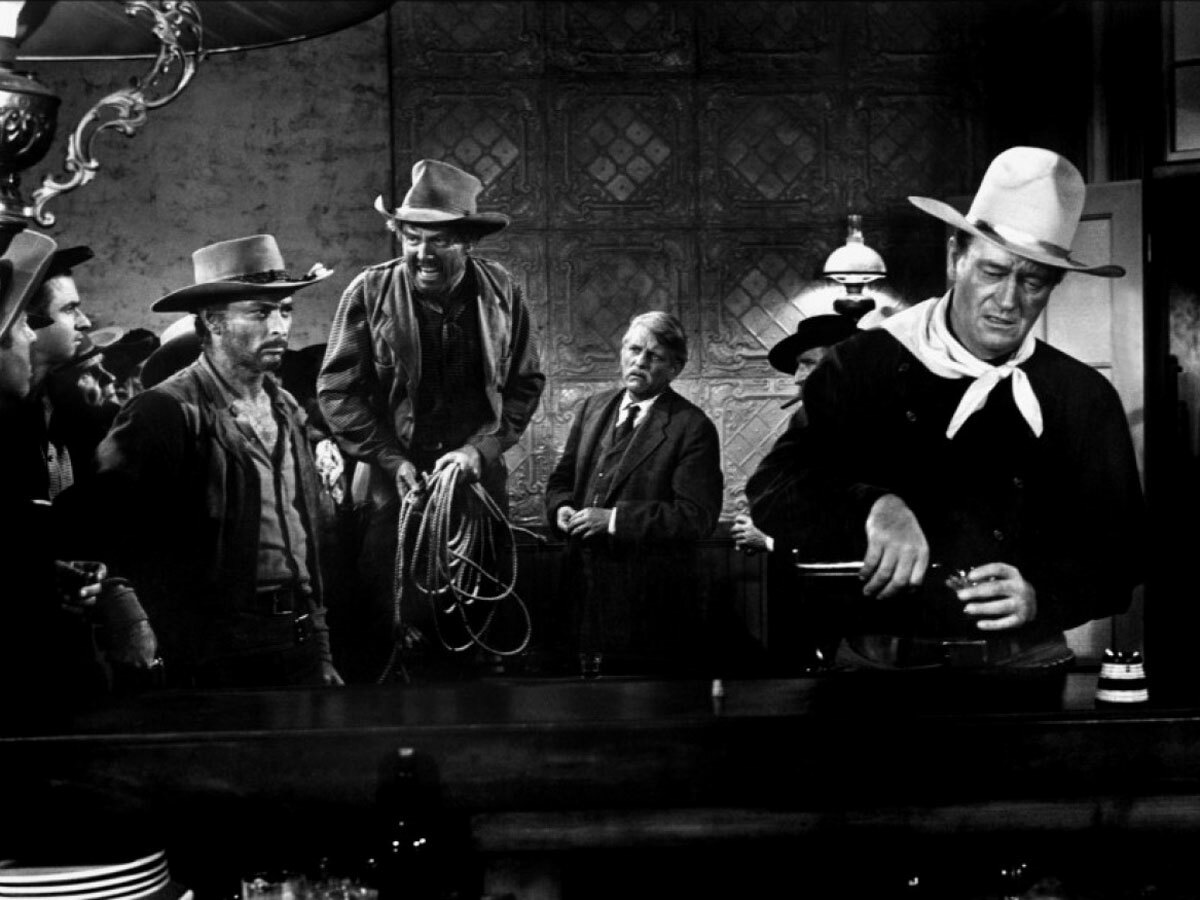
One of John Ford’s many classic westerns, albeit with a far more claustrophobic feel than his sweeping outdoor epics, The Man Who Shot Liberty Valance features an all-star cast led by James Stewart and John Wayne. The former plays a US senator whose success came from committing the titular act – Liberty Valance being a notorious outlaw – while Wayne plays a simple man who turns out to be the real hero of the piece. A musing on how the West made men into legends, and how the reality was often very different to the myth.
The Outlaw Josey Wales (1976)
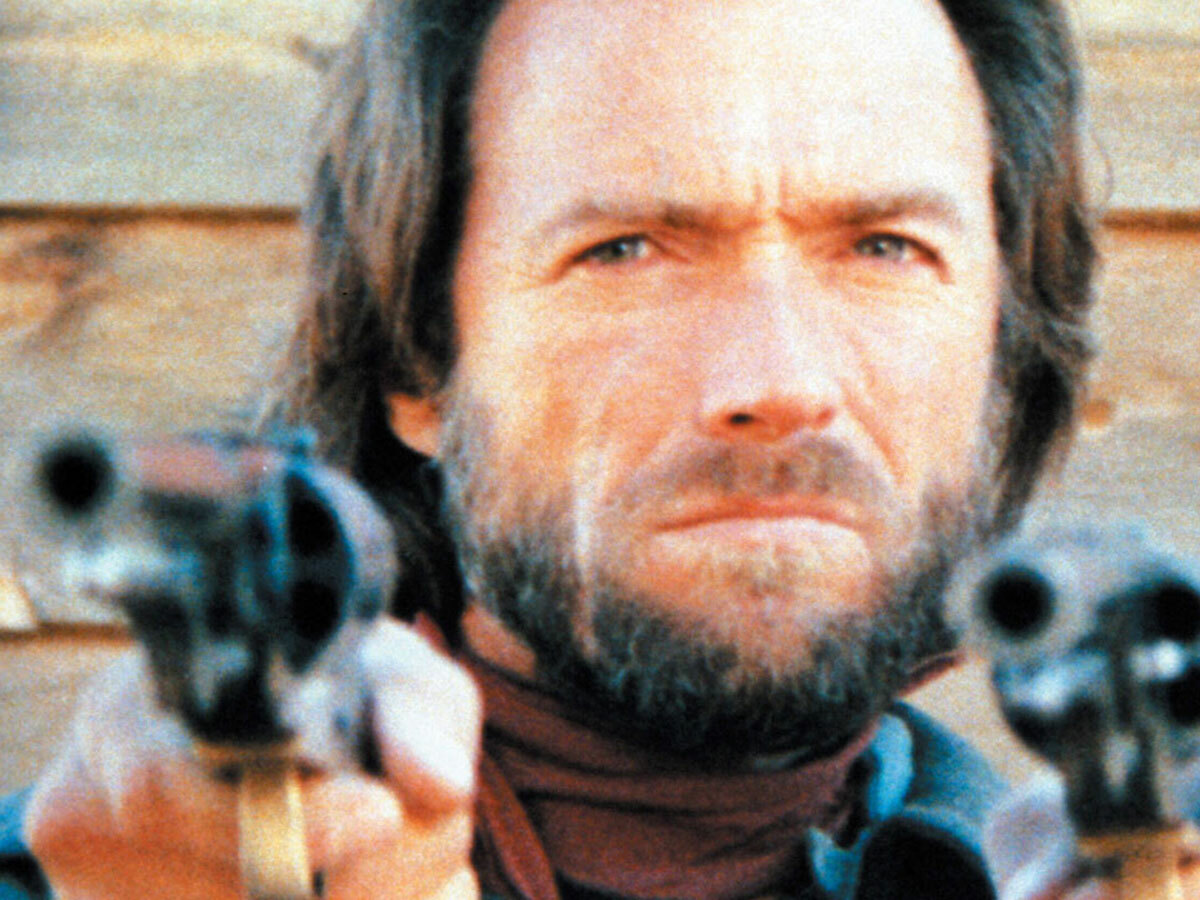
Directed by and starring Clint Eastwood, this is one of the earliest “revisionist” Westerns: films that attempted to portray the Old West in a far more realistic, less clear-cut way than the more simplistic good guy/bad guy movies churned out in the past. Civil War farmer Josey Wales wages a bloody war against Union soldiers and bounty hunters after his wife and son are murdered in cold blood.
The Magnificent Seven (1960)
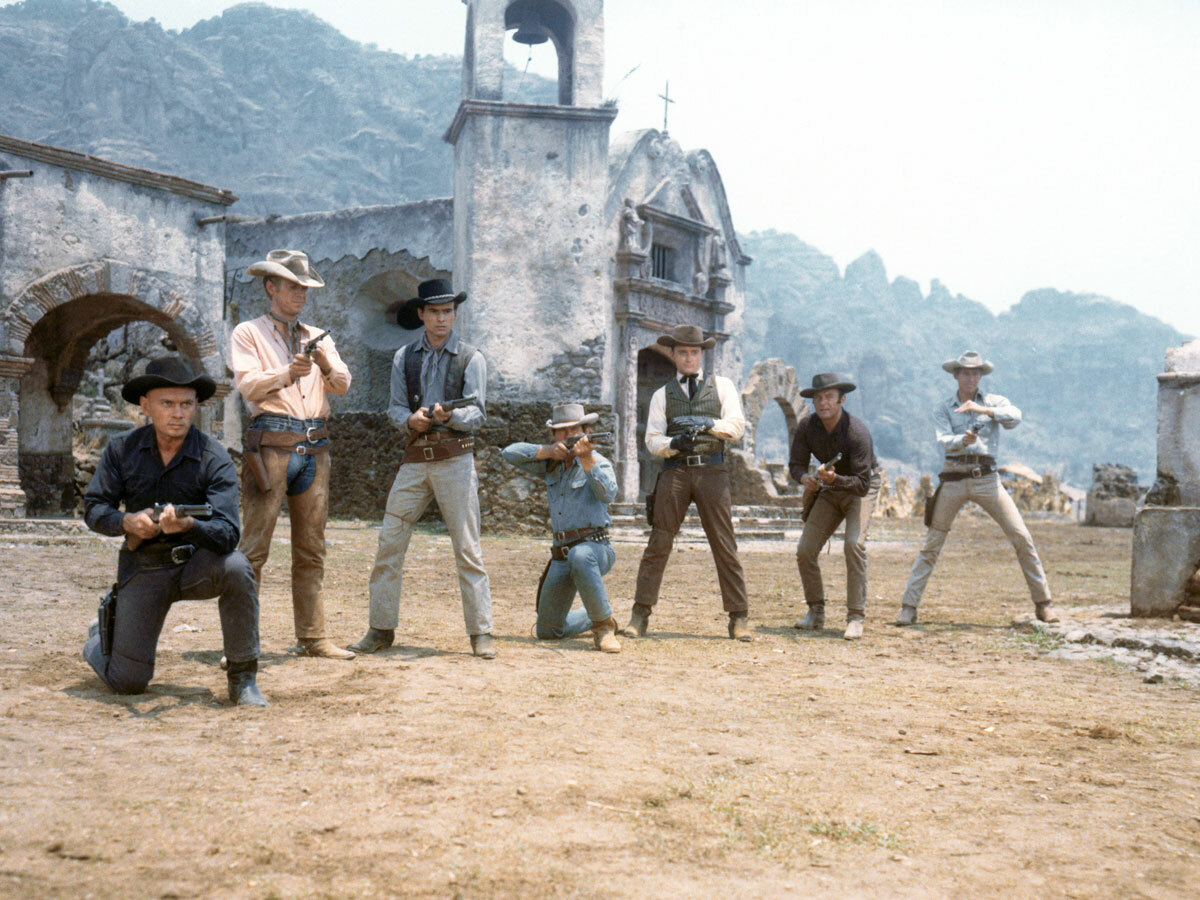
A western adaptation of Akira Kurosawa’s Seven Samurai, the film tells the story of seven gunmen – Yul Brynner, Steve McQueen and Charles Bronson among them – who defend a Mexican pueblo from Eli Wallach’s army of bandits. Despite essentially remaking a masterpiece, John Sturges manages to give The Magnificent Seven its own character: faster-paced, less downbeat and arguably more outwardly “heroic” than the Japanese original.
The Wild Bunch (1969)
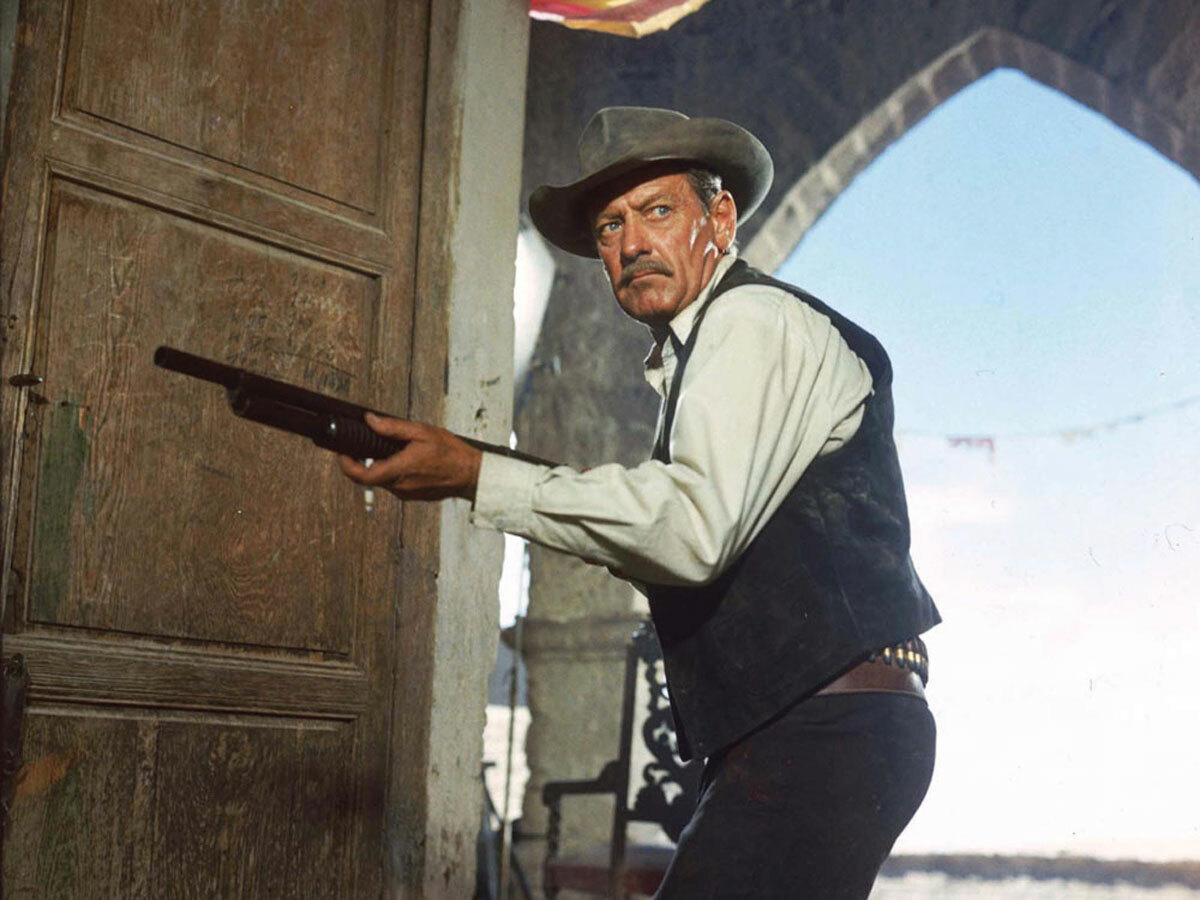
A movie as much about the end of the American West in the face of advancing civilisation and technology as it is about shooting things up, Sam Peckinpah’s tale of ageing outlaws seeking one last big payday doesn’t pull any punches. A brutal, blood-soaked antidote to what Peckinpah regarded as the anaemic, uncomplicated heroic Westerns of the time.
Stagecoach (1939)
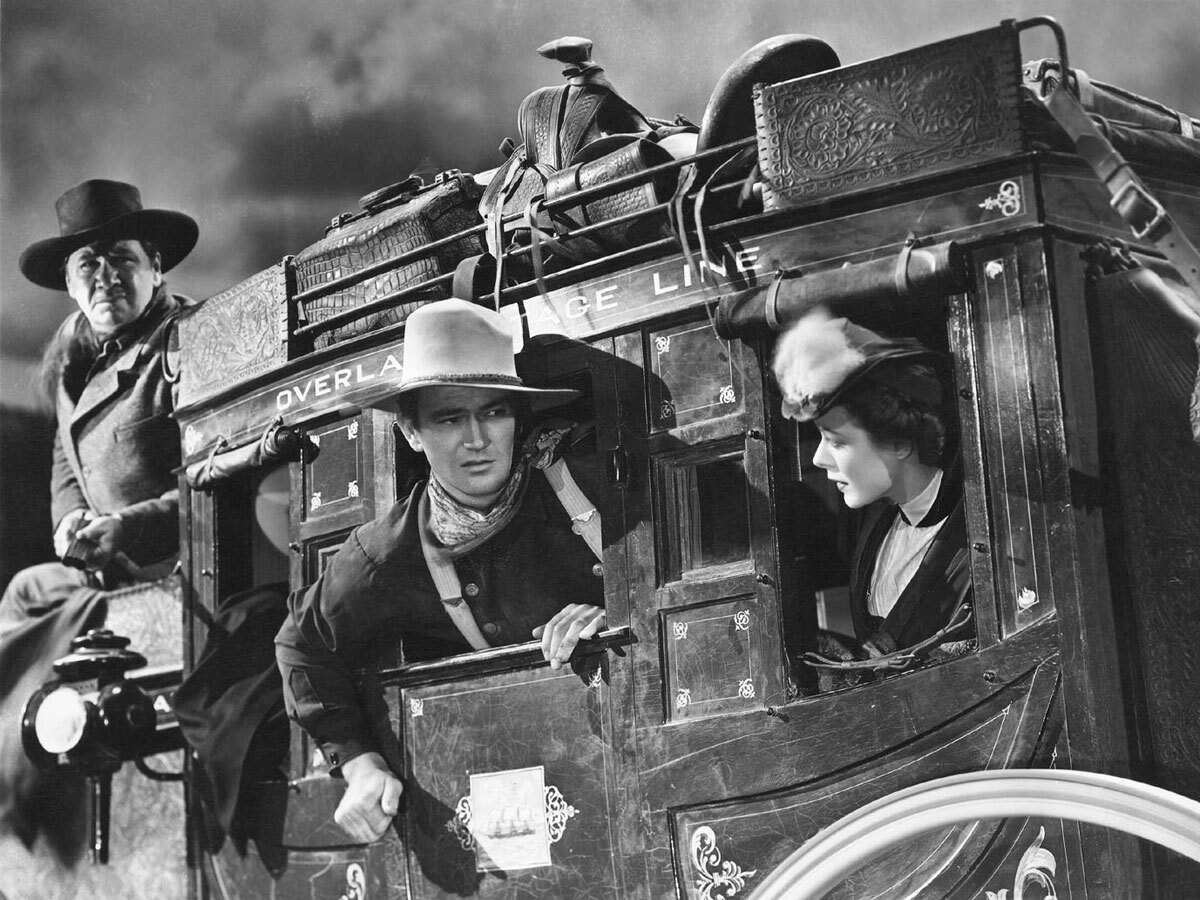
John Wayne became a Hollywood star following his role in Stagecoach, which was also John Ford’s first ever non-silent western and his first shot in Monument Valley, the red, mesa-filled landscape that quickly became a western staple. The movie, which depicts the fraught journey of a motley band of strangers through Apache territory, was considered by Orson Welles to be a “perfect” film; he reportedly watched it over 40 times while making Citizen Kane.
Rio Bravo (1959)
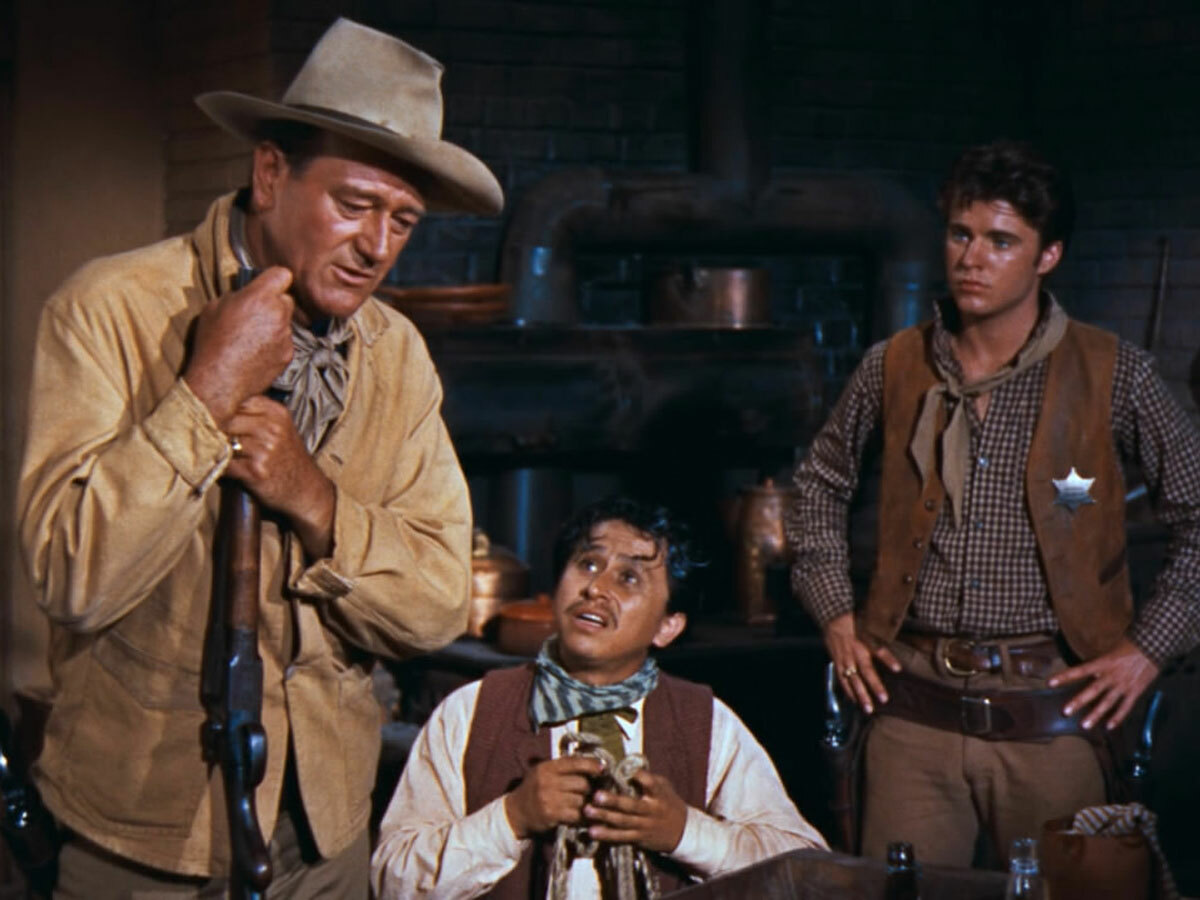
John Wayne makes yet another appearance in our list, this time as a small town sheriff who turns to a ragtag band of allies (Dean Martin included) to stop a bad guy from busting his murderer brother out of jail. An archetypal western that ticks all the boxes and has clear-cut “goodies” and “baddies” – yet certainly one of the best of its period.
Unforgiven (1992)
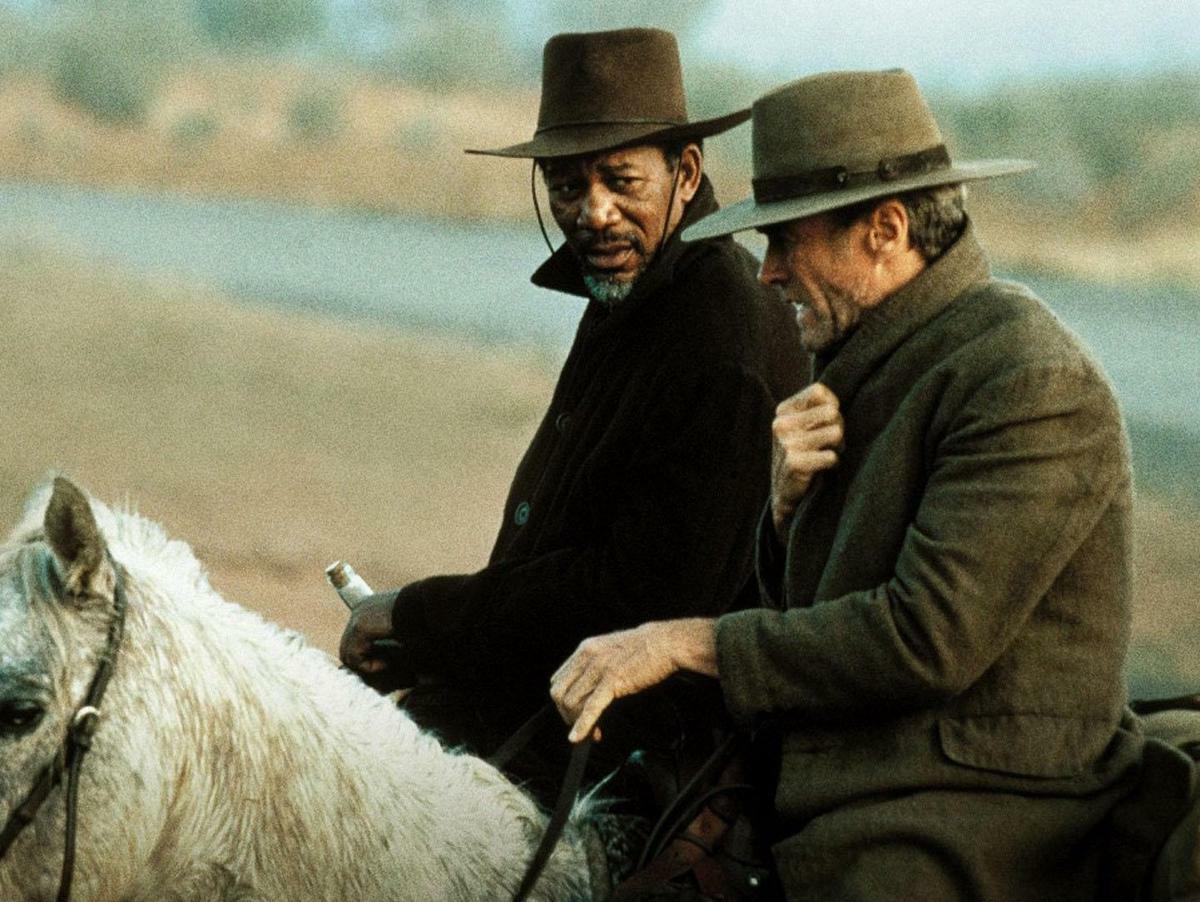
Clint Eastwood bought up the rights to the tale of ageing gunfighter William Munny in the 70s, then sat on it until he was old enough to play the lead role. It was worth the wait – Eastwood’s deconstruction of the Western myth, and his own Man With No Name persona, is like a fine vintage to be savoured.
The Searchers (1956)
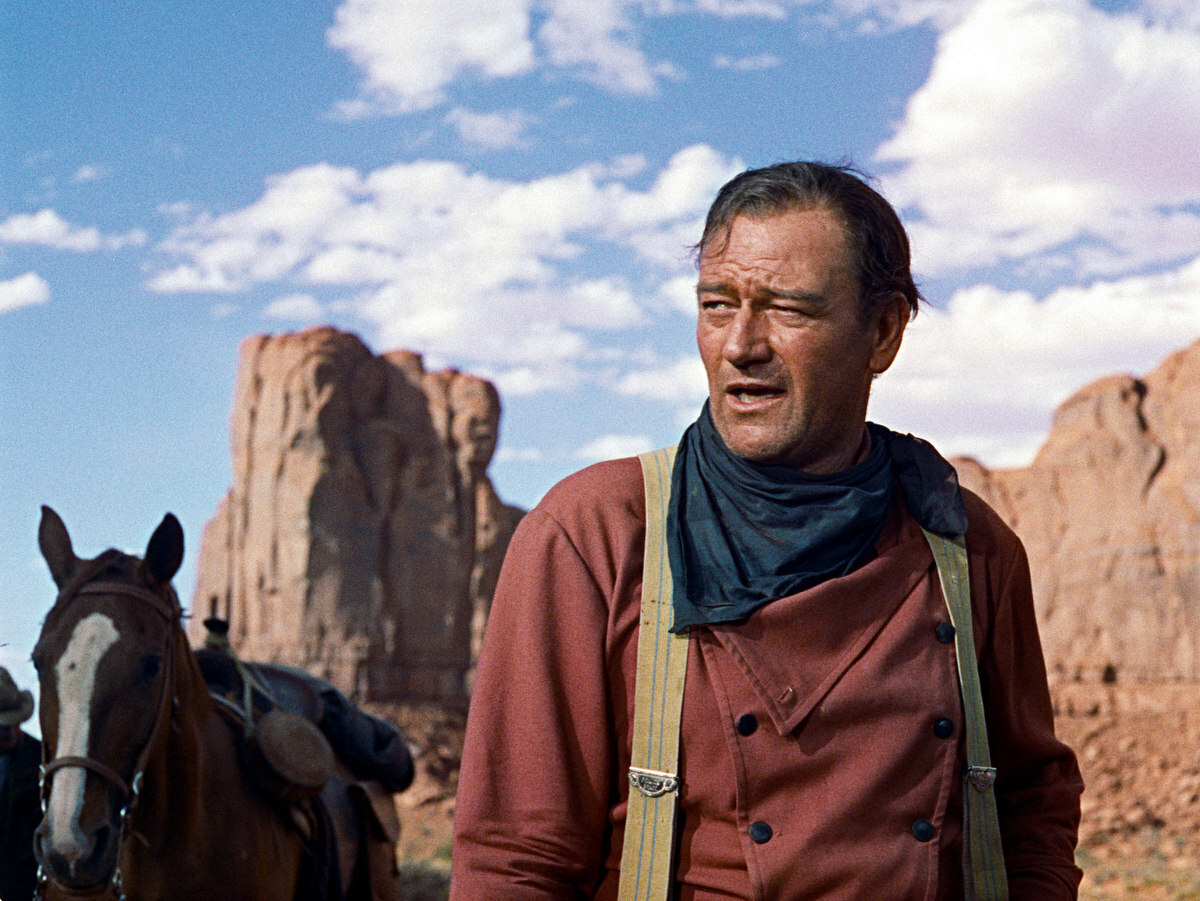
John Wayne Westerns are often thought of as looking back at the Old West through rose-tinted specs – but The Searchers – possibly his finest collaboration with director John Ford – gives the lie to that idea. The film follows embittered Civil War veteran Ethan Edwards as he hunts for his niece, abducted by Comanches years before – but so virulent is his racism that there’s no guarantee he won’t kill her if he discovers that she’s gone native.
Keep an eye out for the film’s iconic shots, including the closing scene in which Edwards stands alone in a doorway, cut off from his family – they’ve been referenced in everything from Lawrence of Arabia to Star Wars to Saving Private Ryan.
My Darling Clementine (1946)
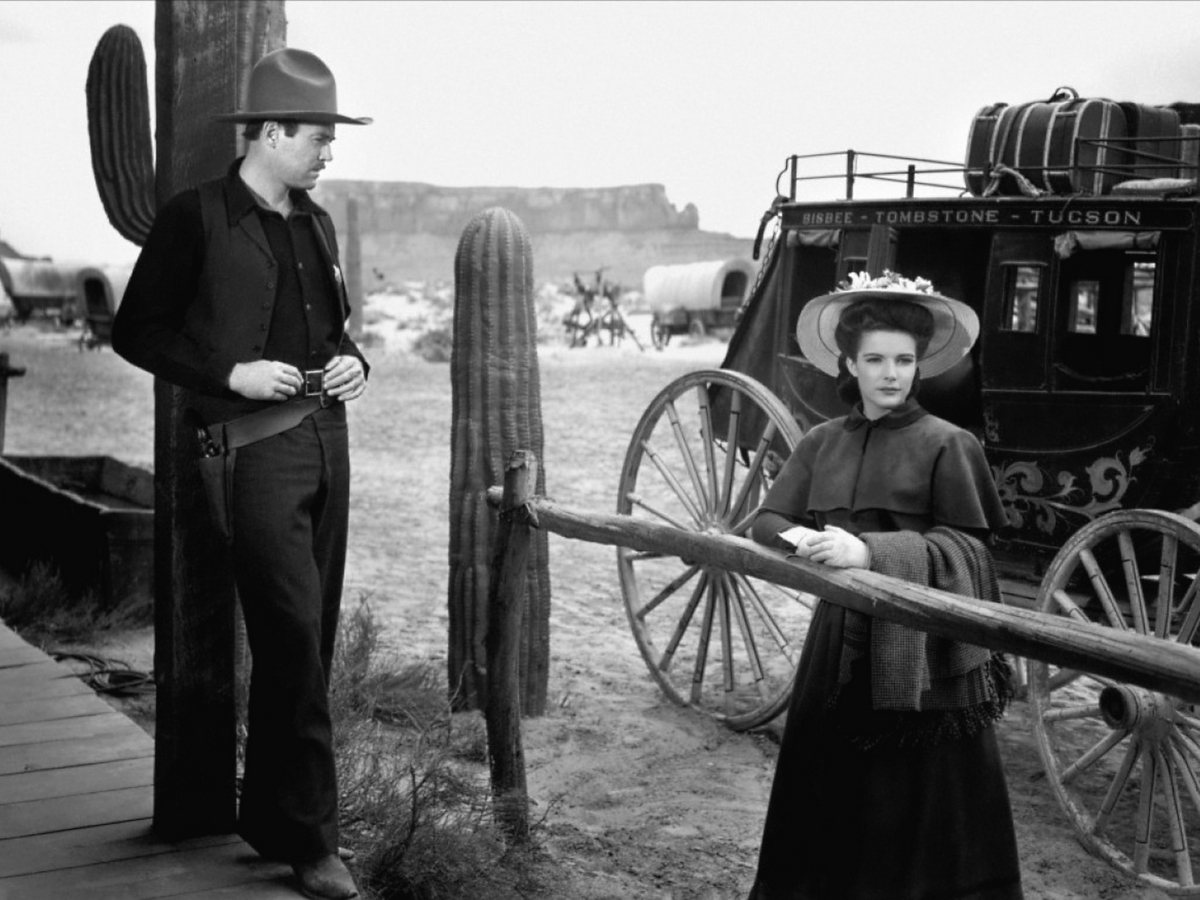
John Ford’s classic Western plays fast and loose with the details of the Gunfight at the OK Corral, but its tale of lawmen and outlaws is the perfect expression of the clash between civilisation and the Wild West. Henry Fonda’s on top form as Wyatt Earp, introducing the values of law and order to the frontier, while Ford uses the landscape of Monument Valley to paint a romantic picture of the Old West.
The Assassination of Jesse James by the Coward Robert Ford (2007)
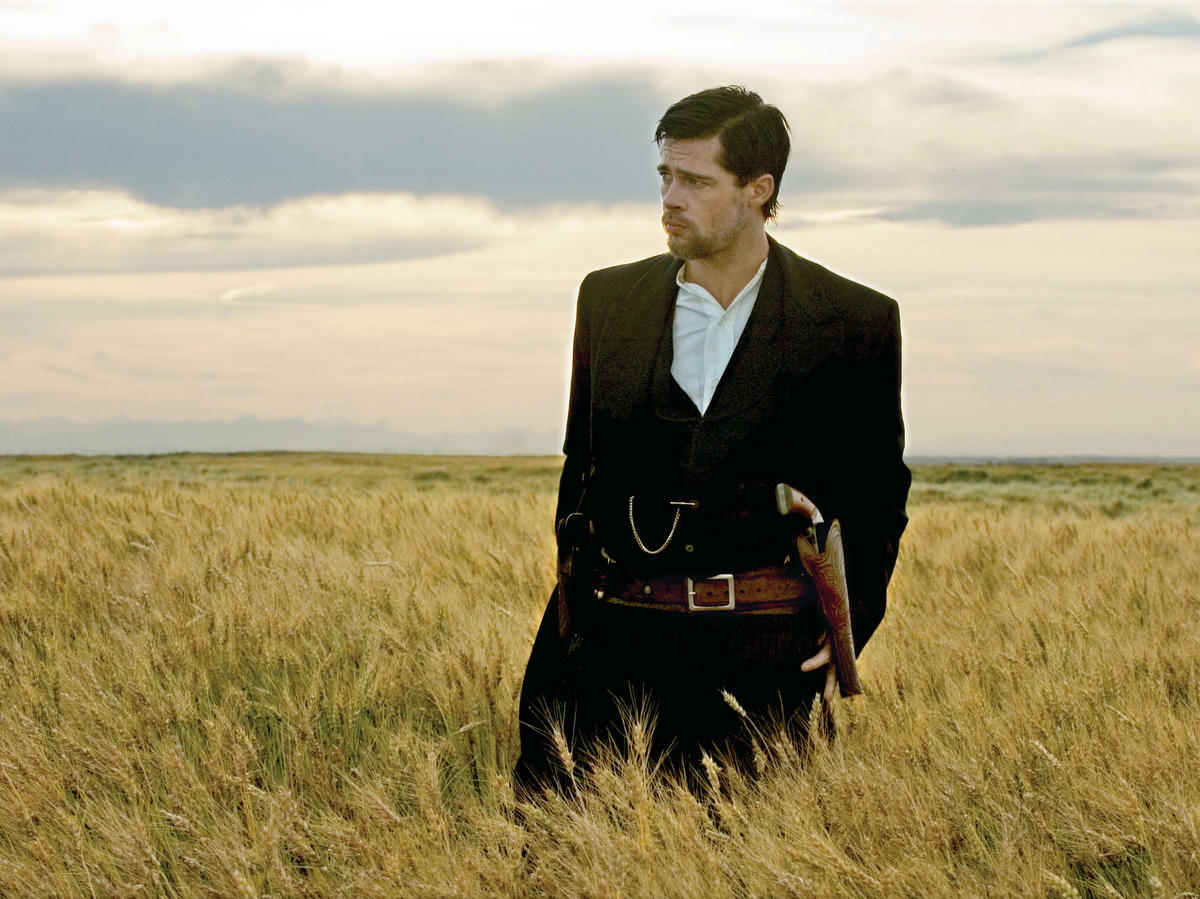
Brat Pitt stars as Jesse James, the infamous frontier outlaw – but it’s Casey Affleck who steals the film as his associate Robert Ford. A shifty, twitchy fellow who hero-worships Pitt’s bandit leader, he’s a modern celebrity stalker transposed to the world of the Old West – and as his obsession curdles into hatred of his idol, so director Andrew Dominik deconstructs the myth of the outlaw hero.
Tombstone (1993)
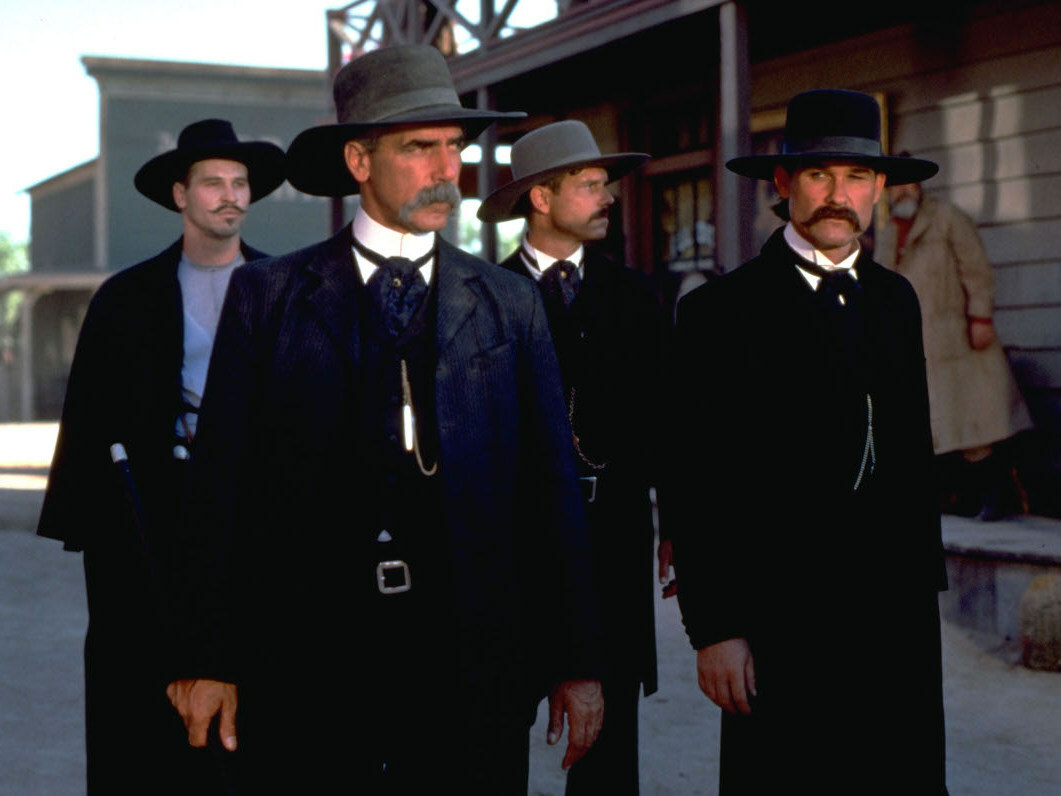
“When the legend becomes fact, print the legend,” as The Man Who Shot Liberty Valance put it – and Tombstone is an appropriately operatic retelling of one of America’s founding myths – the Gunfight at the OK Corral. Kurt Russell is his usual grizzled self as Wyatt Earp, but it’s Val Kilmer who steals the show, bringing a boozy, woozy charm to the consumptive Doc Holliday. “I’m your huckleberry…”
Winchester ’73 (1950)
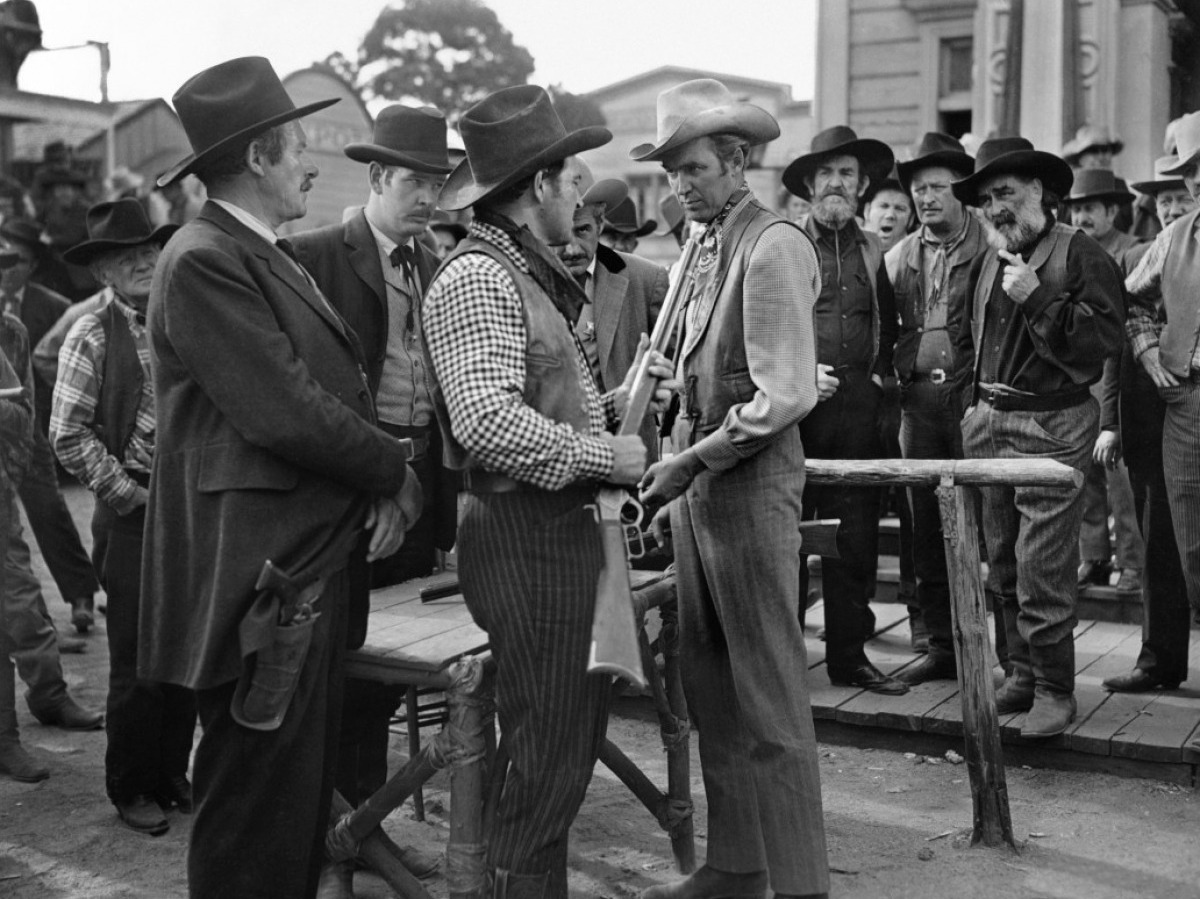
The first collaboration between director Anthony Mann and James Stewart, this noir-ish revenge film follows Stewart’s pursuit of the man who killed his father – and stole the titular rifle. In a neat storytelling gimmick, we follow the rifle as it passes from one hand to another – a handy way for Mann to give us a whistle-stop tour of the Wild West, from Indians to dancehall girls.
True Grit (2010)
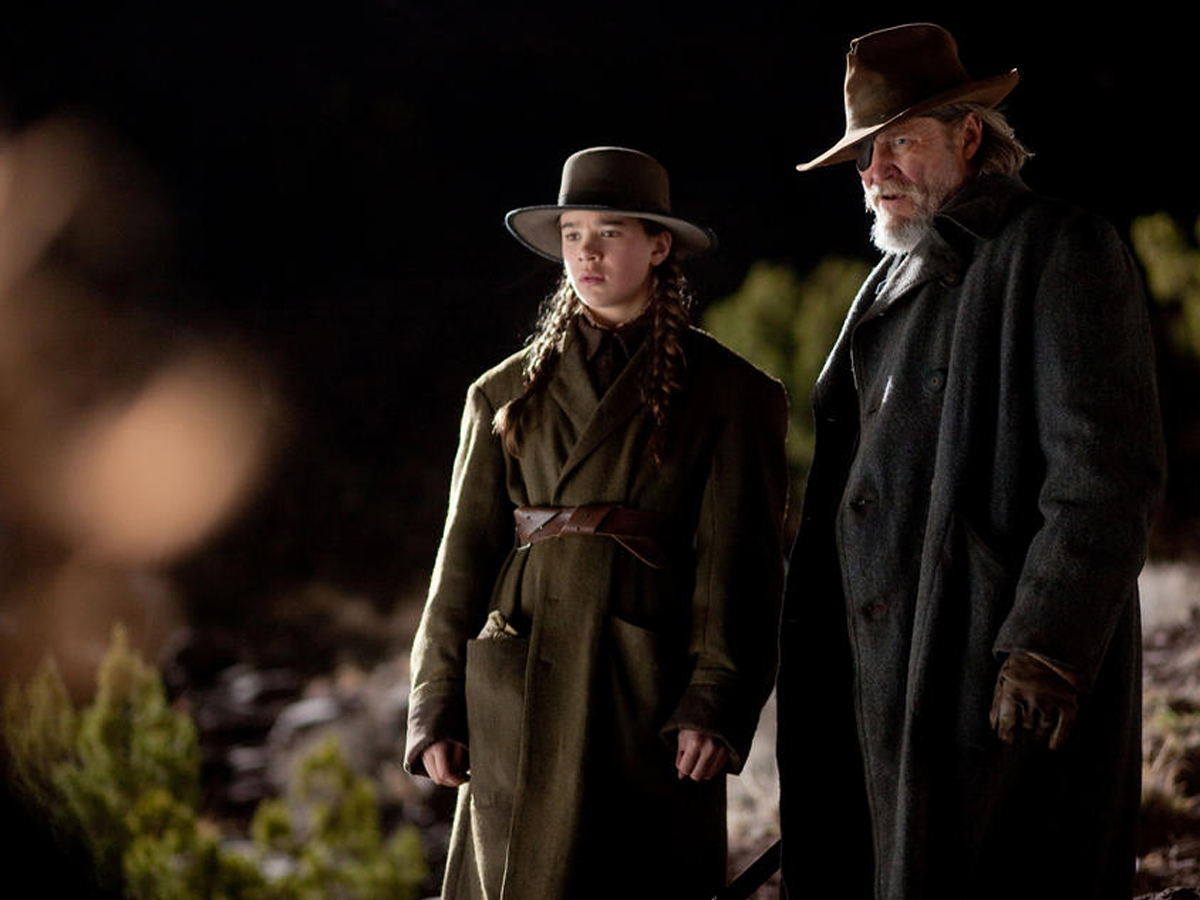
Purists will always argue that the 1969 version of True Grit was better, but they’re only saying that because it had John Wayne in it. The Coens pay willing tribute to the dusty genre, with Jeff Bridges in fine form as the sozzled US Marshal Rooster Cogburn – but it’s Hailee Steinfeld’s steely Mattie Ross that gives the 21st century cut its compelling human heart.
Rango (2011)
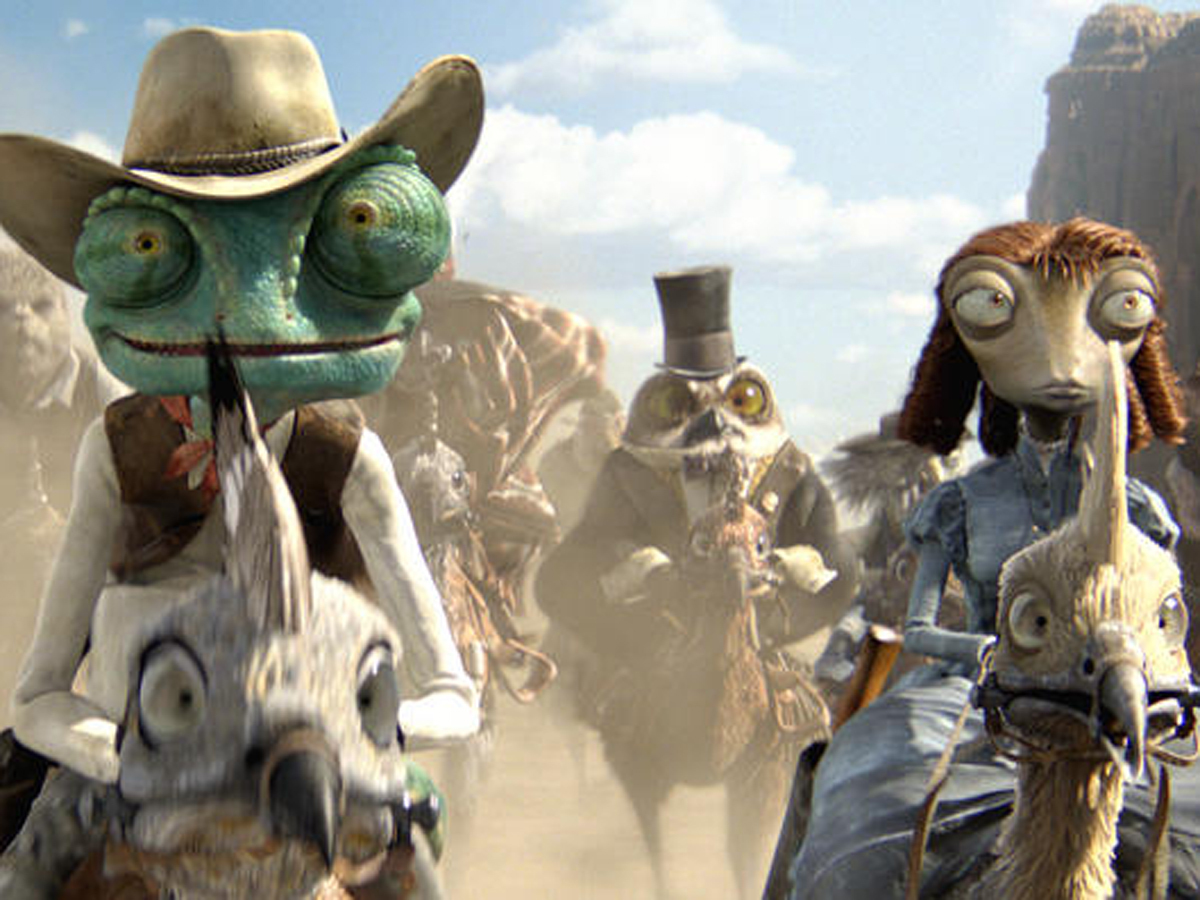
Not your typical Western gunslinger, Rango is the story of the eponymous chameleon’s journey from family pet to accidental hero. Its cast of crazy creatures (voiced by Johnny Depp, Isla Fisher, Ray Winstone and Bill Nighy, among others) makes for an animated treat that’s a cut above your bog standard sub-Pixar effort. And the visuals – created with the help of Skyfall cinematographer Roger Deakins – conjure up a uniquely skewed take on the look of the Old West.
Pat Garrett and Billy the Kid (1973)
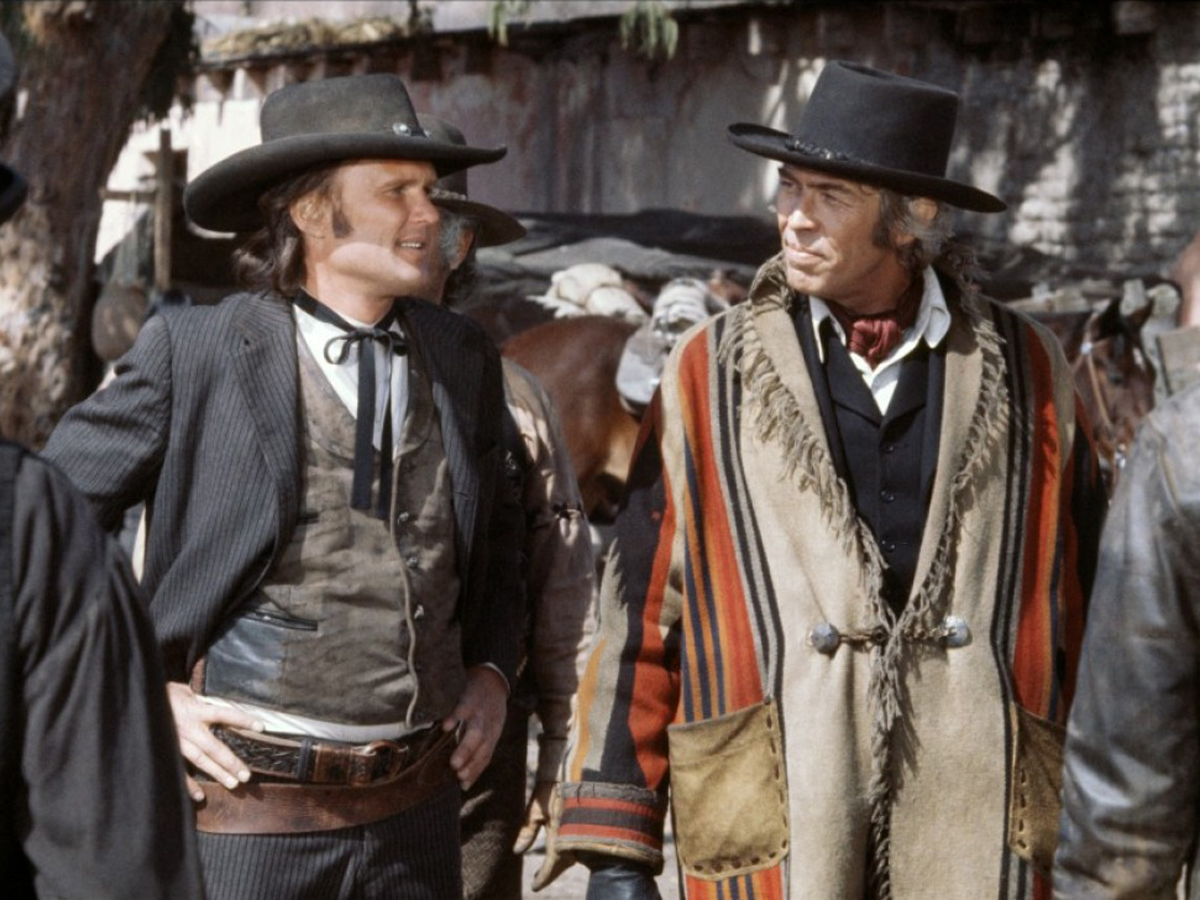
For the musically-minded, Pat Garrett and Billy the Kid is notable for its cast, which includes Kris Kristofferson and Bob Dylan among its leading lights. A feuding director (Sam Peckinpah) and production company (MGM) led to a poor release cut, but catch the 1988 re-release of Peckinpah’s original vision and you’ll see why PGABTK is rightly regarded as a classic of the Western genre.
McCabe & Mrs Miller (1971)
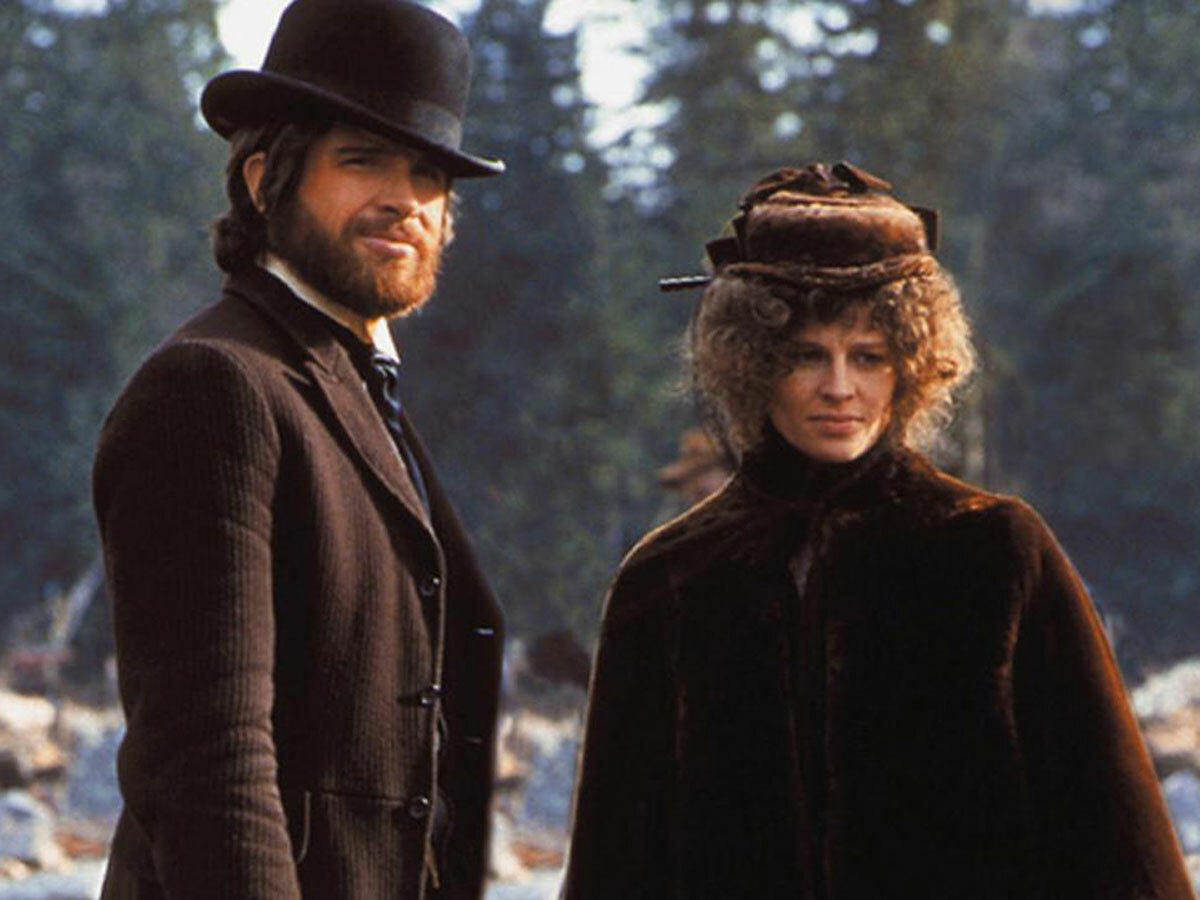
Robert Altman was never going to make a straight-up, old-fashioned Western, and McCabe & Mrs Miller subverts many of the genre conventions: Warren Beatty’s McCabe is not a virtuous, salt-of-the-earth hero but a scheming gambler, while Julie Christie’s Mrs Miller is an opium-addicted prostitute – and one without a heart of gold. America’s foremost film critic Roger Ebert considers McCabe & Mrs Miller to be Altman’s best movie.
Blazing Saddles (1974)
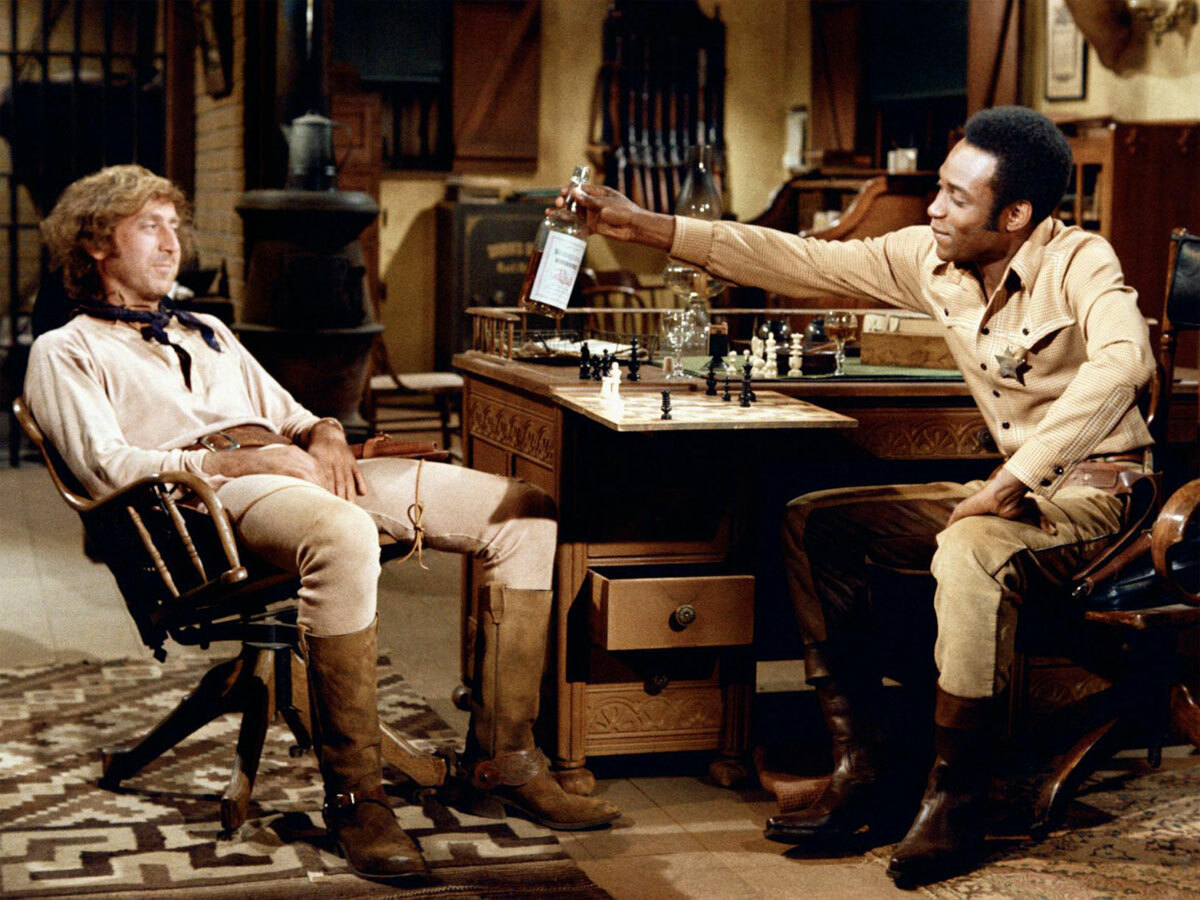
Mel Brooks lends his comedic touch to the Western genre in this satirical comedy starring Cleavon Little as the first African-American Sheriff in the West and Gene Wilder as sozzled gunslinger Jim. Breaking the fourth wall in the most blatant way imaginable, the fight scene which spills out into the Warner Brothers lot and across other film sets – culminating just outside the premiere of the film itself – is the highlight of Brooks’ masterpiece.
Butch Cassidy and the Sundance Kid (1969)
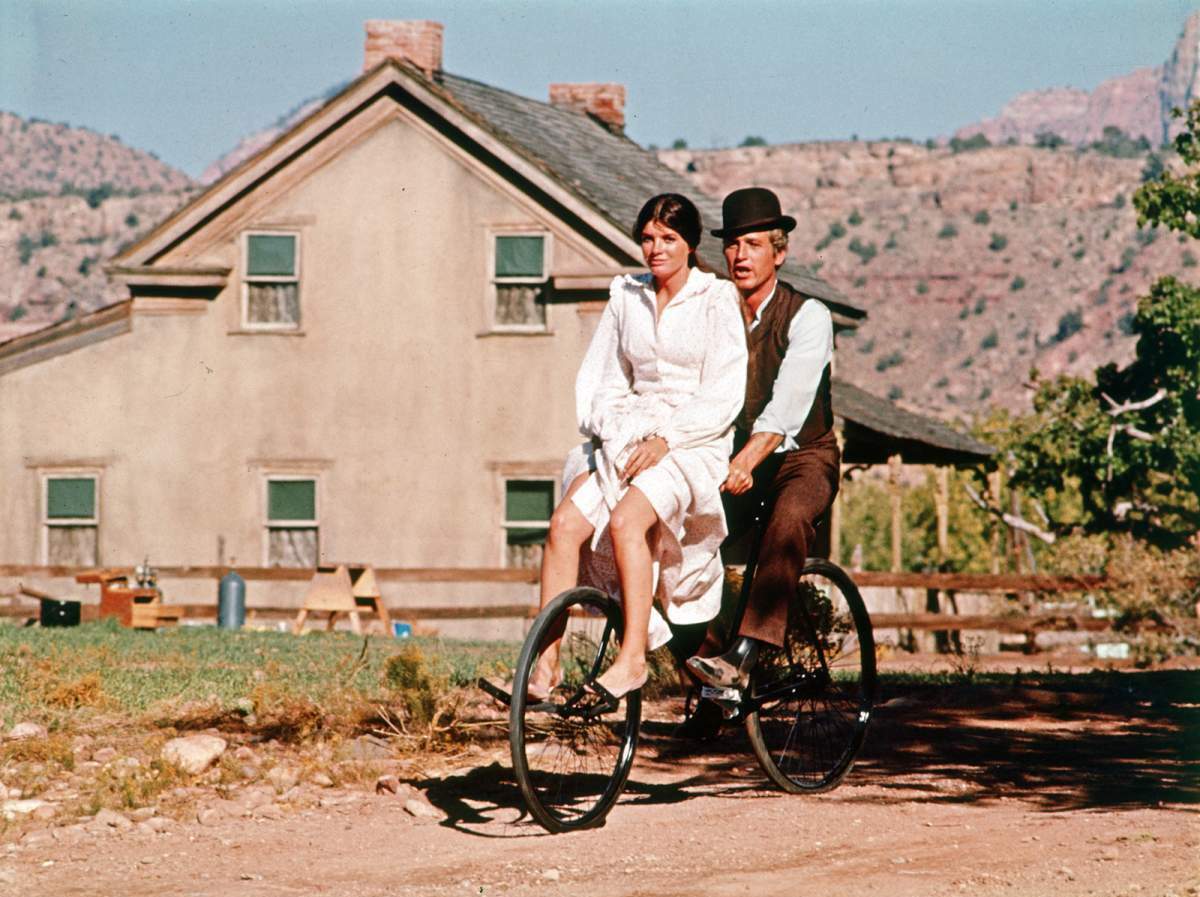
Netting four Academy Awards, this classic western paired up Paul Newman and Robert Redford as the outlaw duo trying to outrun the law before their past catches up with them. An epic musical score and top shelf performances from the two acting greats earns it its well-deserved place in the United States National Film Registry.
Pale Rider (1985)
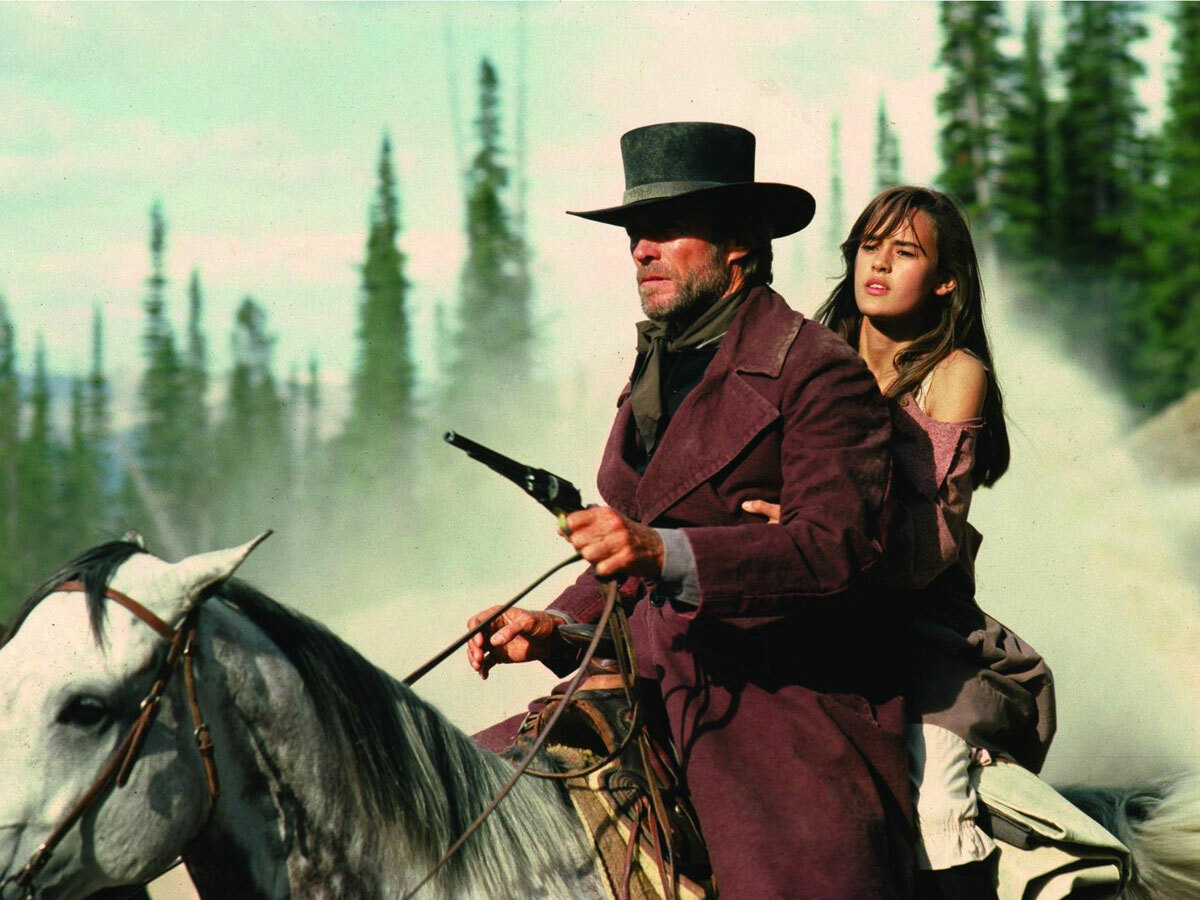
Yet another appearance for Clint Eastwood in our list, who produces and directs as well as starring as a taciturn preacher who, for a man of the cloth, seems strangely well versed in the use of firearms. The plot is pretty standard Western fare, with Clint protecting a group of downtrodden townspeople from a gang of thugs (in fact it’s almost a remake of Shane) but the religious overtones and air of mystery surrounding the lead character make Pale Rider the pick of the genre as far as the 1980s are concerned.
Back to the Future Part III (1990)
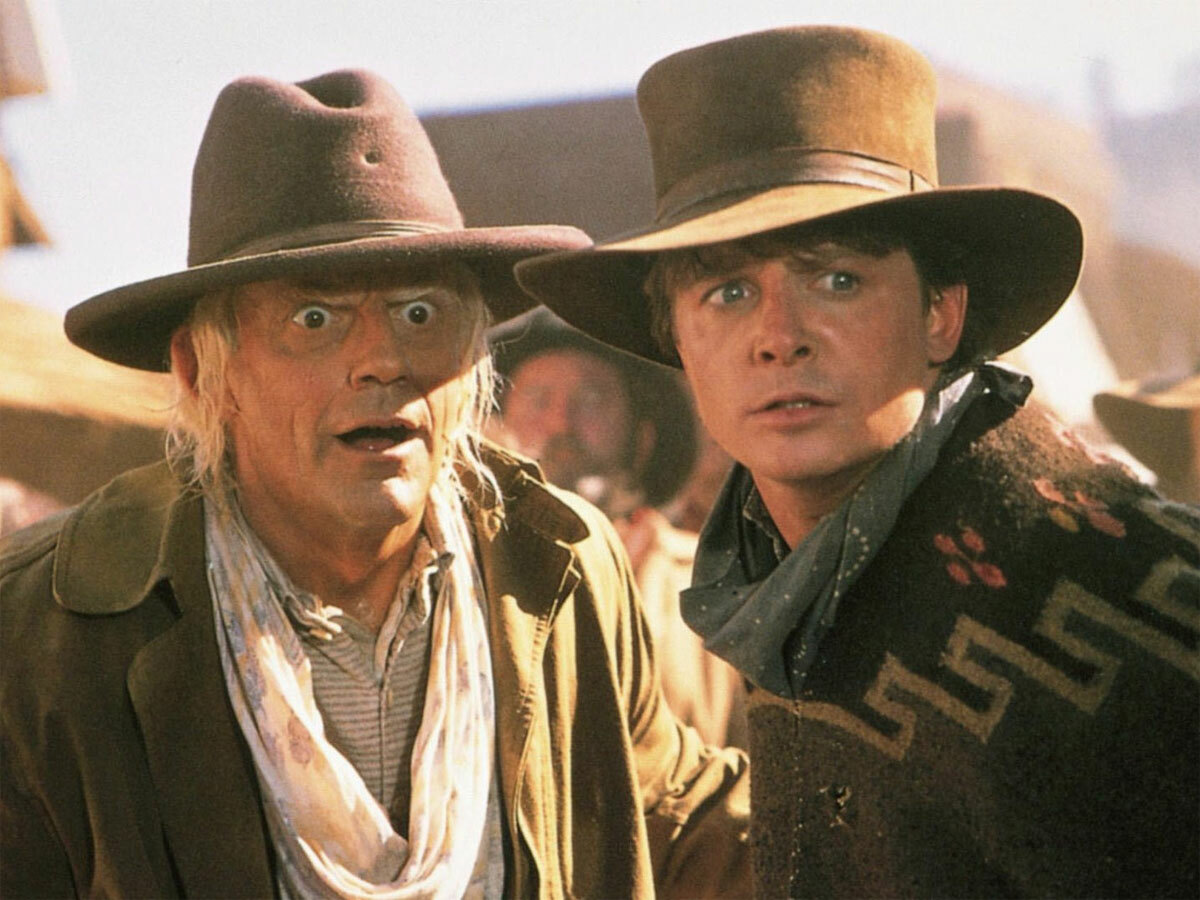
The final installment in the Back to the Future trilogy sees Marty travel back to the Wild West to save Doc Brown from a terrible fate at the hands of Buford “Mad Dog” Tannen. Ditching the flying cars and dark undercurrents of the first sequel, Part III is a freewheeling romp through all the Western clichés, from swinging saloon doors to quick-draw showdowns. Great Scott!
High Noon (1952)
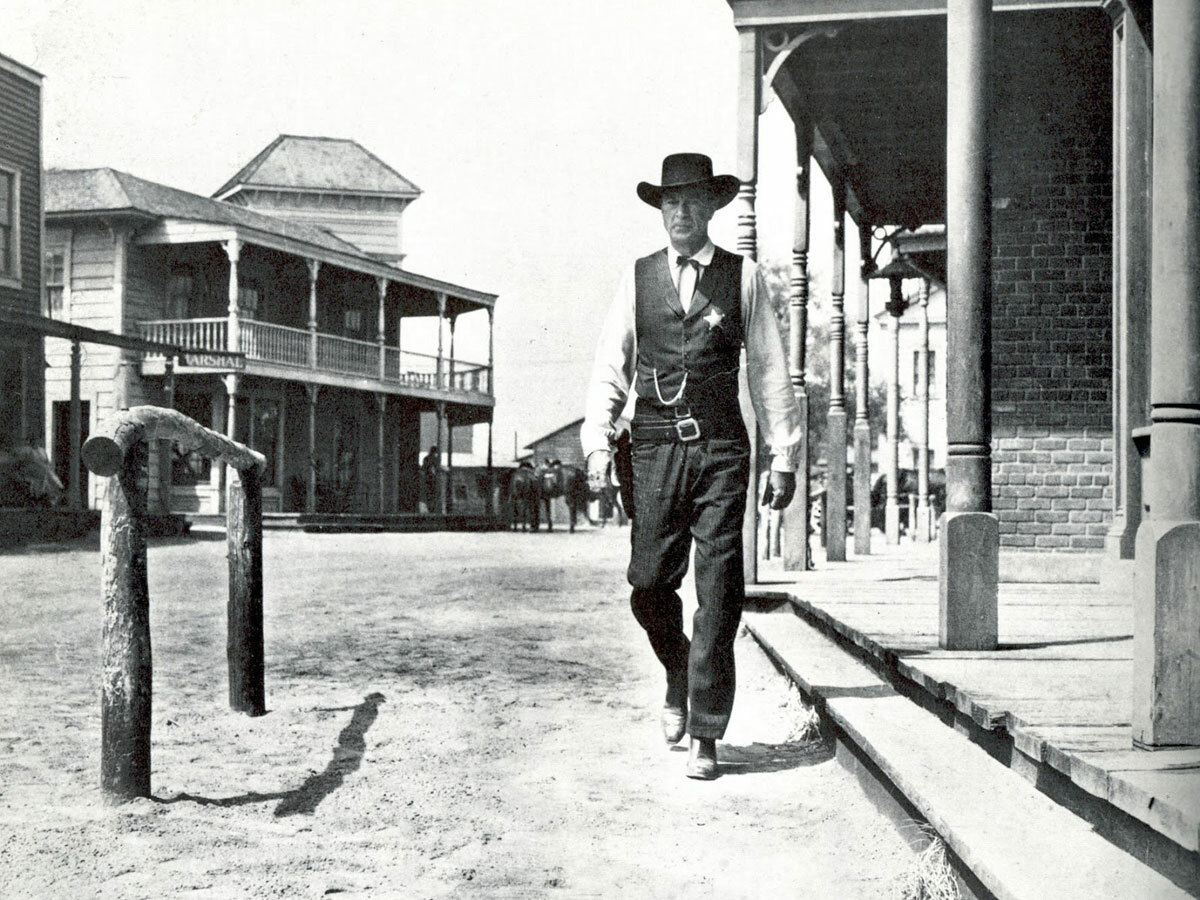
High Noon tells its story in real time, as Gary Cooper’s about-to-retire marshal Will Kane discovers that a notorious criminal he brought to justice is due to arrive in town at, well, high noon. Knowing that a fight is coming, Kane attempts to unite the townspeople behind him. High Noon is Bill Clinton’s favourite film, and during his presidency he screened it no fewer than 17 times at the White House.
Shane (1953)
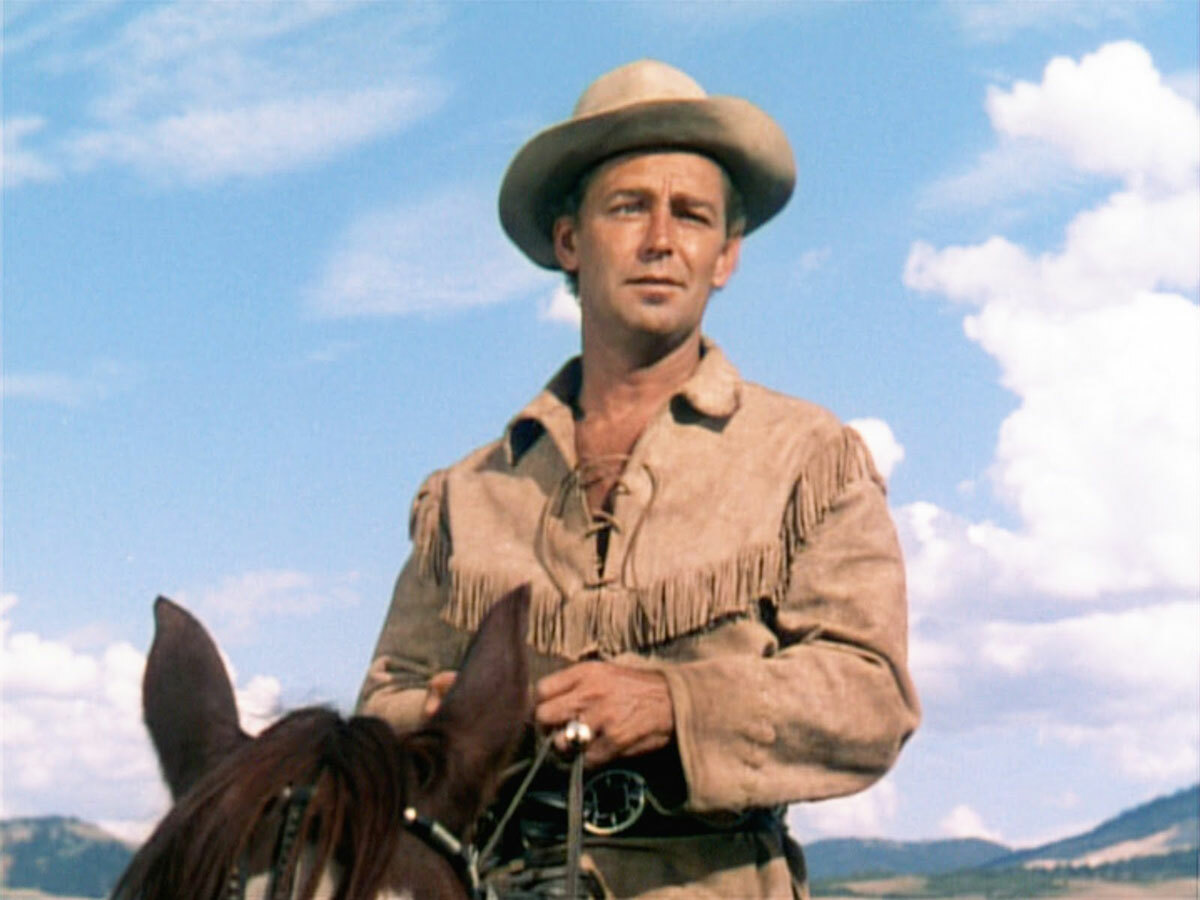
Along with High Noon, Shane is probably the most famous Western of the 1950s. Following the genre’s conventions to the letter (it may, in fact, have established several of these conventions itself), it follows a gunslinging drifter whose attempts to settle into a peaceful life are disrupted by a dispute between cattle ranchers and settlers. The cinematography, full of epically sweeping, blue-skied vistas, won the movie an Oscar.
Once Upon a Time in the West (1968)
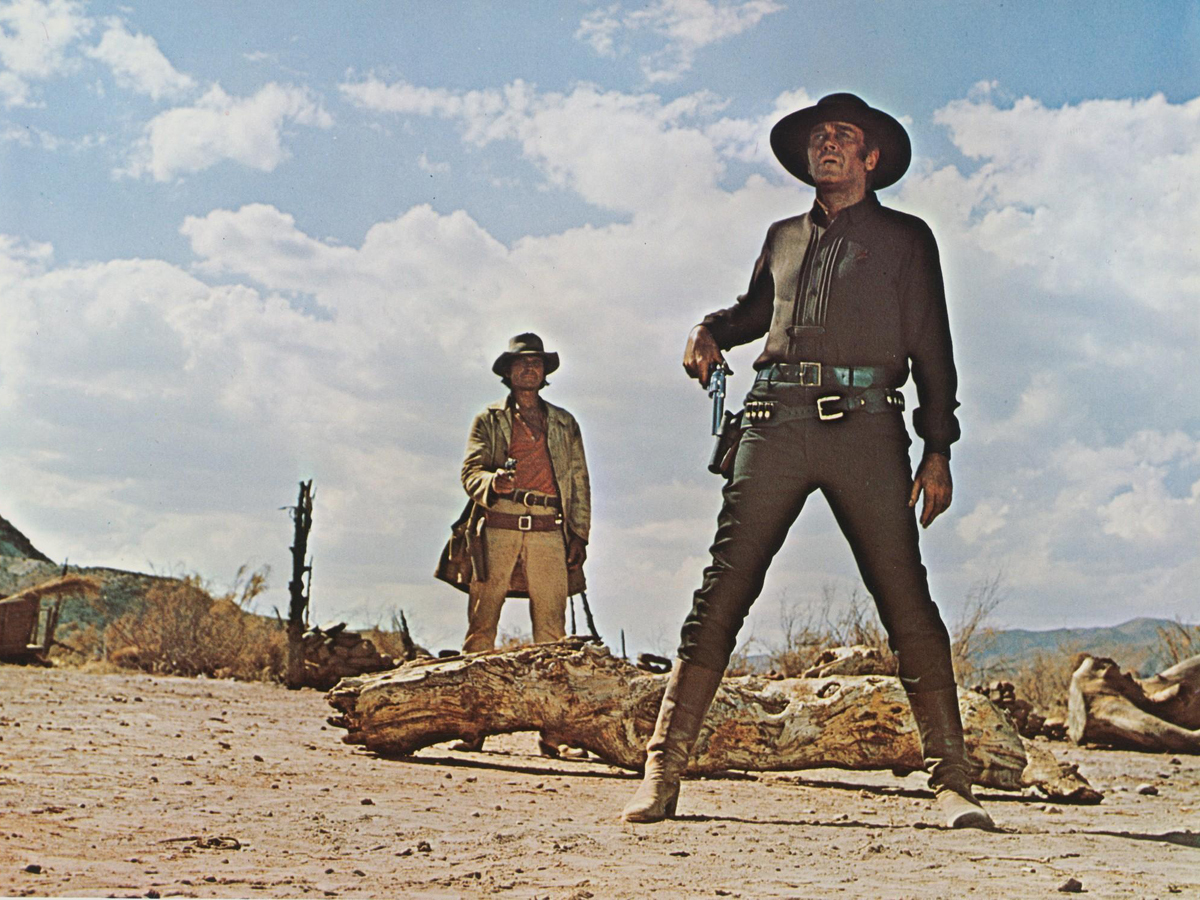
Sergio Leone put away the crowd-pleasing antics of his Dollas trilogy to create two and half hours of cinematic history with this scorched-earth homage to the gritty realities of homesteading on the new frontier. Expertly paying homage to practically every film in the Western genre, Leone helps Henry Fonda finds his dark side and gives Charles Bronson his own theme tune (supplied, of course, by long-term Leone sidekick Ennio Morricone).


